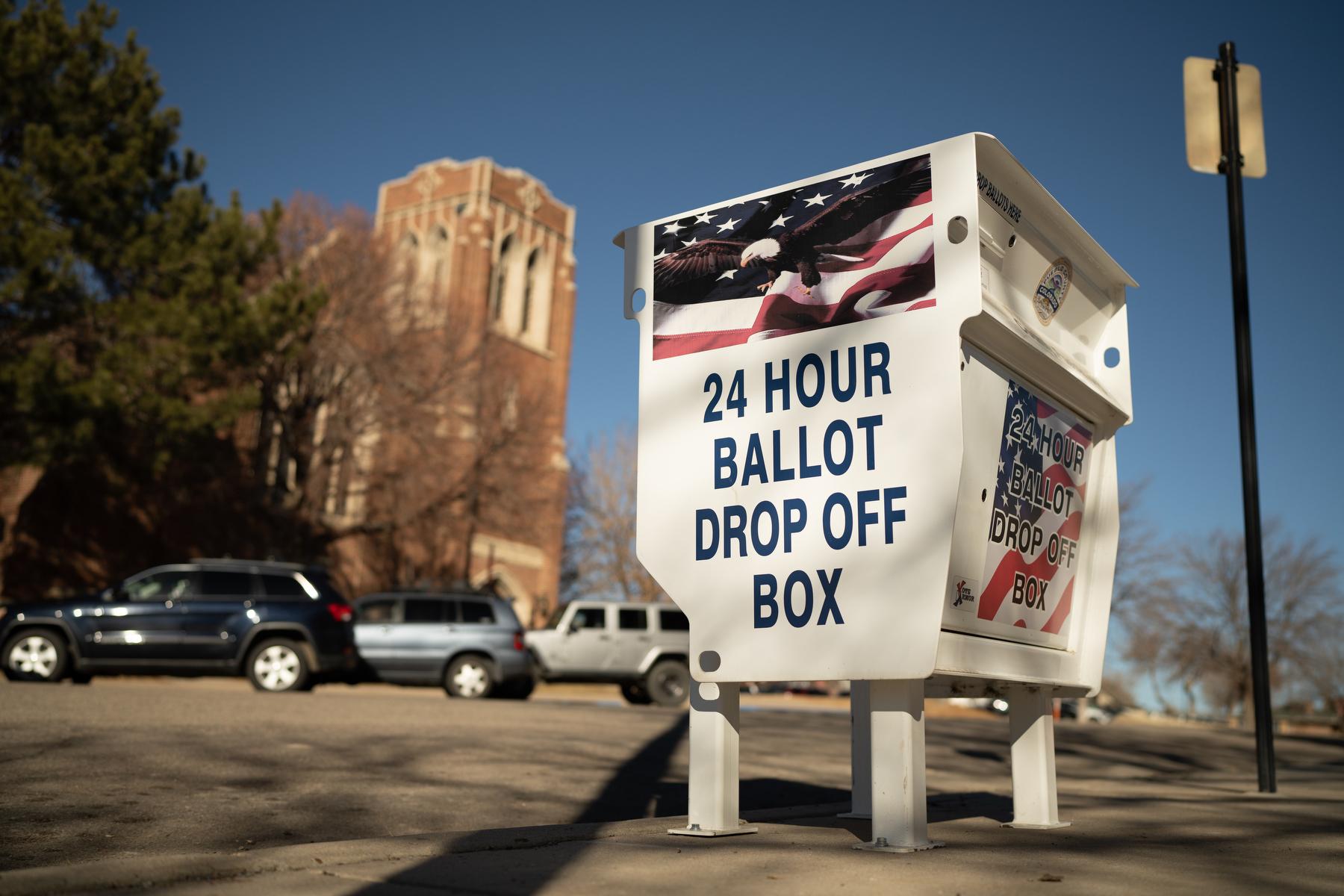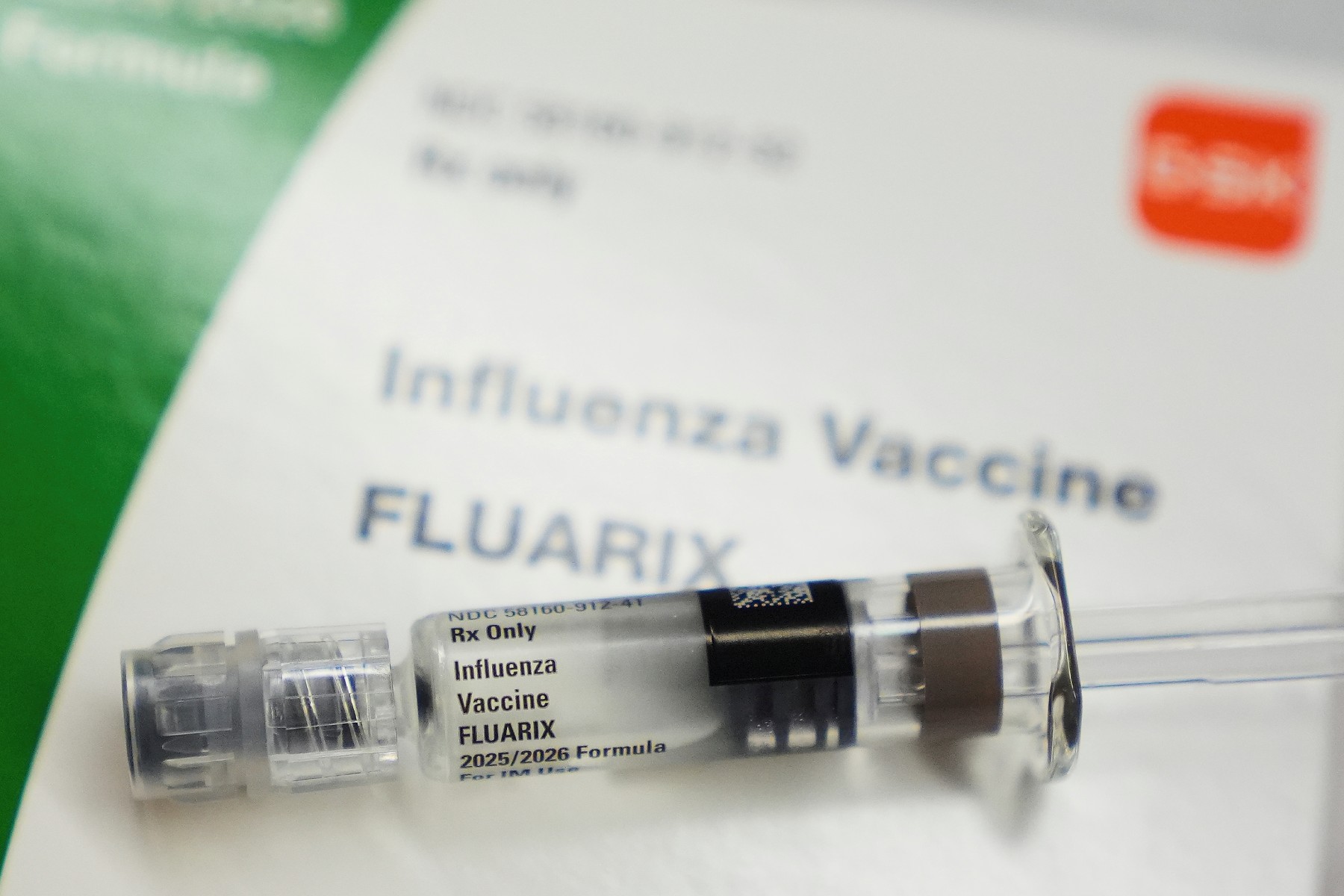
Updated at 9:11 a.m. on Friday, June 20, 2024.
Colorado is in a tug of war over the personal data, including immigration status, of tens of thousands of people, that the Trump administration could use as it ramps up its deportation efforts.
In early June, the Centers for Medicare and Medicaid Services (CMS), the federal agency that administers the nation’s health program for low-income Americans, made a hefty data request to Colorado’s agency that administers Medicaid, as well as their counterparts in more than a half dozen states.
Then this week, the Associated Press reported CMS has shared personal information of Medicaid from people living in California, Illinois, Washington state and Washington D.C., with the Department of Homeland Security, the agency in charge of immigration enforcement and the administration’s deportation push.
Advocacy organizations are now warning about the legal, health and safety risks of Colorado turning over its data, if it does.
“Once you create a justification for sharing with an agency, a federal agency that has nothing to do with the delivery of health care, how do you not apply that justification to any other agency?” said Annie Martinez, litigation director for the Colorado Center on Law and Policy, an anti-poverty group, in an interview. “I think this is something that should concern everyone. You start with the most vulnerable people, but it ends up catching everybody.”
She worries the federal Immigration and Customs Enforcement will use the information to detain immigrants in Colorado.
“They have a quota, and they keep expanding the pool from which they will detain to meet that quota,” she said.
“HHS and CMS take the integrity of the Medicaid program and the protection of American taxpayer dollars extremely seriously,” said U.S. Health and Human Services spokesperson Andrew Nixon in an email. “With respect to the recent data sharing between CMS and DHS, HHS acted entirely within its legal authority – and in full compliance with all applicable laws – to ensure that Medicaid benefits are reserved for individuals who are lawfully entitled to receive them.”
Request made June 6
CMS made the request earlier this month, a spokesman for the state agency that manages its Medicaid program said via email.
“On June 6, the Department of Health Care Policy & Financing received lengthy and detailed data requests from the Centers for Medicare and Medicaid Services and is evaluating the request and developing a plan for how to respond,” wrote Marc Williams, public information officer with the Department of Health Care Policy & Financing.
As of June 6, Colorado was among eight states that had received the data request, he said.
It’s not clear exactly what data was requested by CMS, but various advocacy groups said they believe it was the same type of information asked of other states.
“We would love for them (state officials) to figure out a plan that does not involve handing over the data,” said Heather Tritten, President and CEO of the Colorado Children's Campaign. She worries the request will discourage families from signing up for some state programs, which she said will save money because otherwise people delay preventive care and then seek much more expensive emergency care later.
“We are really concerned about the chilling effect that sharing this data would have, I mean, there's already a chilling effect in terms of the overall,” she said. “Even this request is a scary thing.”
“We're concerned about the legality of the request or of the department's potential response. We're opposing release of this information in this particular way,” after what’s happened with the data from the other states, said Bethany Pray. Pray is Colorado Center on Law and Policy’s chief legal and policy officer.
Health care rights groups concerned
Others also called on Colorado officials to deny the request.
"We’re extremely troubled by CMS' targeted request,” said COLOR, the Colorado Organization for Latina Opportunity and Reproductive Rights, in a statement. “These Medicaid enrollees are our family, neighbors, friends, and community members who simply sought out health care when they needed it most and whose privacy and safety may now be at risk.”
“Immigrant communities have fought for decades to access basic health care in Colorado,” said Nicole Cervera Loy, policy and campaign manager at the Colorado Immigrant Rights Coalition, in a statement posted online. “We will not allow our communities to be punished for using care they are entitled to under Colorado law.”
“We are deeply concerned about the potential implications of having personal identifying health information turned over to an agency that has no authority over CMS or Medicaid. Coloradans with disabilities expect that both the state and federal government will judiciously guard their personal information, including sensitive health information,” said Hillary Jogensen, Co-Executive Director of the Colorado Cross Disability Coalition, in the statement.
Officials with both HHS and the Department of Homeland Security defended the data request to the other Democratic-run states, according to the Associated Press, saying HHS acted within its legal authority.
Assistant DHS Secretary Tricia McLaughlin, said in a statement that President Donald Trump “promised to protect Medicaid for eligible beneficiaries. To keep that promise after Joe Biden flooded our country with tens of millions of illegal aliens. CMS and DHS are exploring an initiative to ensure that illegal aliens are not receiving Medicaid benefits that are meant for law-abiding Americans.”
Health program at risk
At the start of this year, Colorado began offering Medicaid coverage to undocumented children and pregnant women via a program called Cover All Coloradans. Through another program called OmniSalud a limited number of undocumented residents can purchase health insurance through the state’s marketplace, Connect for Health Colorado.
Cover All Coloradans covers about 15,300 kids and 4,300 pregnant women, according to a spokesperson for the Colorado Children’s Campaign. They noted the program enrolls people regardless of immigration status, so it’s possible not all those children are undocumented.
The program was launched to help all qualifying children and pregnant people see a doctor and get care.
Some conservatives have argued programs like this take money from other programs and vulnerable populations. Its backers say it actually saves money.
“A person's immigration status does not change the fact that they will need medical care at some point. And the healthier we keep our communities and allowing them to access health care means that we save money,” said Tritten of the Children’s Campaign.
Reaction from other public officials
A spokesperson for the governor’s office declined comment, referring CPR to the Department of Health Care Policy and Financing.
The attorney general’s office said it had no comment at this time.
CPR reached out to members of the state’s Congressional delegation. Not all of its members responded, but the response unsurprisingly split on party lines.
“Medicaid should be reserved for the vulnerable, not people here illegally,” said GOP Rep. Jeff Crank, who represents the state’s 5th Congressional district in an emailed statement.

“Colorado’s sanctuary state policies cover illegal immigrants with taxpayer funded Medicaid – prioritizing benefits for those unlawfully present in our country over citizens who need it most: individuals with disabilities, single mothers, children, and seniors,” said Rep. Gabe Evans, of the state’s 8th district.
“We should resist complying with Trump’s requests for data that they will use to terrorize immigrant communities whenever lawfully possible,” said 7th district Rep. Brittany Pettersen.
The state’s Medicaid agency’s website, in an FAQ section, explains that federal law offers privacy protections to those who sign up with Colorado’s program. They also acknowledge that they are not absolute.
“In the past, Immigration and Customs Enforcement has not seen or used Medicaid and CHP+ application information for immigration enforcement,” it states. “However, no one can know for sure what will happen in the future.”
Health and Human Services Responds
In its email to CPR, HHS spokesman Nixon explained the agency’s position.
“This action is not unprecedented. What is unprecedented is the systemic neglect and policy failures under the Biden-Harris administration that opened the floodgates for illegal immigrants to exploit Medicaid – and forced hardworking Americans to foot the bill,” he said.
Nixon added that in states like California, “these failures are now on full display. While millions of Americans struggle to afford care, the state of California has aggressively expanded its taxpayer-funded health benefits to cover illegal immigrants – directly defying the intent of federal Medicaid law. California provides free, full-scope Medicaid coverage to low-income illegal immigrants, no questions asked.”
In the statement, he said the Biden administration not only failed to enforce the law—it actively created the conditions for abuse. “Through rulemaking and policy guidance, it weakened state oversight, discouraged immigration verification, and tied the hands of CMS and state agencies alike.” Nixon called these deliberate choices and said they have cost American taxpayers and allowed benefits to be “siphoned away from the vulnerable citizens they were designed to serve.”
“That ends now,” Nixon said.

“Under the leadership of Dr. Oz, CMS is aggressively cracking down on states that may be misusing federal Medicaid funds to subsidize care for illegal immigrants. This oversight effort – supported by lawful interagency data sharing with DHS – is focused on identifying waste, fraud, and systemic abuse,” the spokesman said. “We are not only protecting taxpayer dollars – we are restoring credibility to one of America’s most vital programs. The American people deserve accountability. HHS is delivering it.
The Associated Press contributed to this report.
Editor’s Note: This story has been updated with comments from an HHS spokesman.







